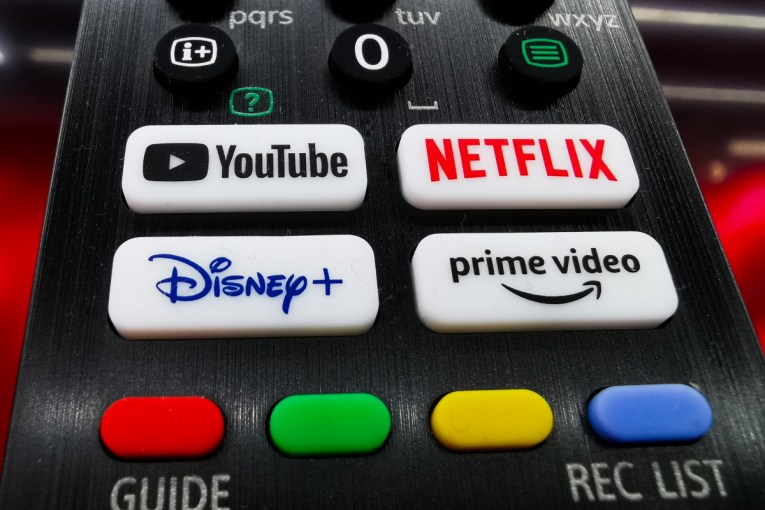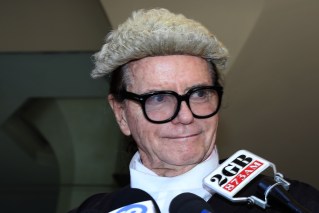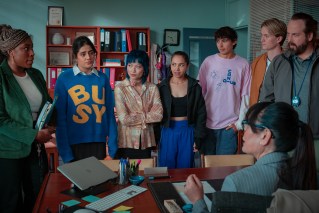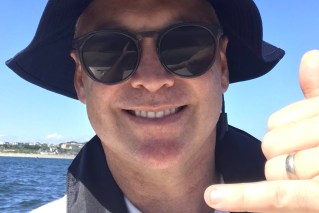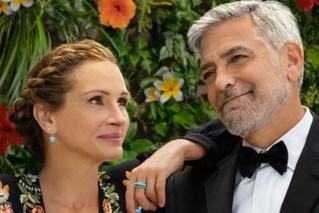Changing channels: why FTA TV is dying
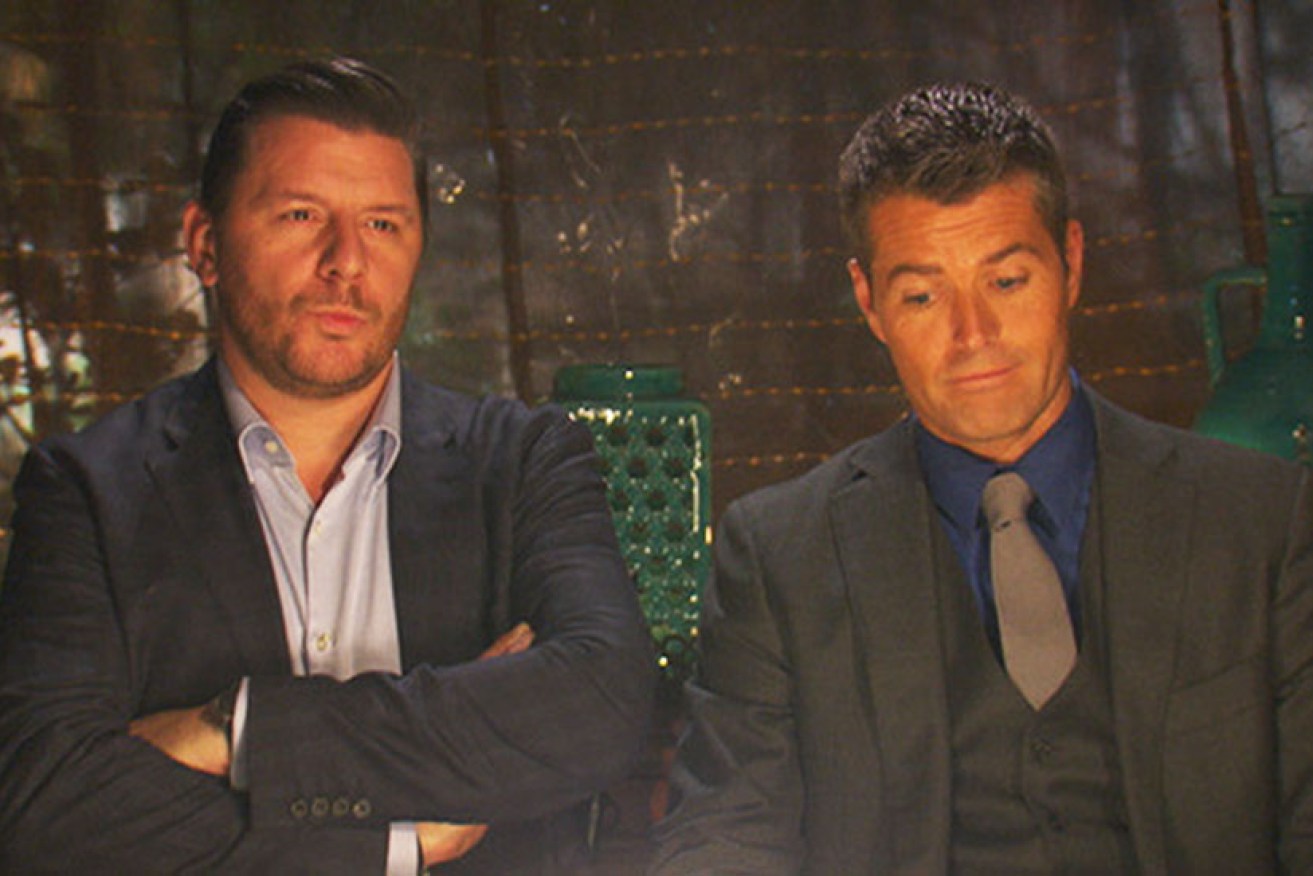
Now 10 years old, MKR still features judges Manu Fieldel and Pete Evans. Photo: Seven
Don’t look now but … oh wait, you weren’t looking now. That’s kinda the problem.
This week, the Seven Network acknowledged the sluggish ratings Downton Abbey had been delivering for the Sunday kick-off to each 2015 ratings week.
• The best new shows you’ll be loving in 2015
• Why Joe Hockey’s movie tax will make us all pirates
• Game of Thrones season five episodes leak online
• Is The Odd Couple reboot worth watching?
Proving the perennial four-month lag on the show’s broadcast in the UK may have finally hurt its Australian audience, the manor house melodrama was retired to Thursday nights, replaced by Seven’s guaranteed champion: a fresh episode of My Kitchen Rules.
Come Monday morning, the network execs may have been checking the fine print on that guarantee. MKR only served up a lukewarm result, losing out to the news.
It was a single cough – the numbers have bumped back up for the rest of the week – but it may be symptomatic of a much bigger problem.

Downton Abbey was bumped from its primetime Sunday spot to Thursday nights after viewers lost interest.
Sunday night is meant to be TV night. Big audiences for big shows, not a handful of programs scraping over the million mark.
A year ago two million watched MKR at this stage. The year before almost three million watched the grand final.
Instead, not one entertainment show topped the news. Were Australians too busy downloading Game of Thrones illegally or bingeing on Daredevil on Netflix?
In the second half of 2014, the pitch perfect storm of The Voice and X Factor (and The Voice Kids) resulted not only in an avalanche of amateur artists but also a calamitous slide in ratings.
The assumption at the time was that the talent quest genre had been oversaturated to the point of audience disenfranchisement. In hindsight, it may have been the first sign of a fatal leak of audience away from reality television.
The second tremor that truly hinted at a bigger problem came at the beginning of the year. With music in a mire, the formulaic world of reality television was left with food and renovations as their two proven winners.
Then in February, The Block totally, and utterly, failed to launch. Behind the scenes there has been much navel gazing about what happened. Should Nine have waited until the Australian Open finished? Should The Block have started with its All Stars on site, not the meaningless elimination of newbies? Or dare it be whispered, is Australia just over it?

The Block Triple Threat failed to entice viewers like previous seasons.
Regardless, the renovation ratings stalwart has not recovered and Nine has struggled to launch other series, such as Gallipoli, off the back of its sudden ratings vacuum. The 1.1 million who watched Sunday’s room reveal is a boon this year. Last year it would have been cause for an inquest.
Reality television has been one of the last sources of riches for the free-to-air networks over the last decade. The ratings rush of foreign dramas and sitcoms has dwindled to a weekly trickle of Big Bang Theory. Australian drama has stepped up but has not found anything like the same audience numbers.
The networks have turned instead to sport, news and reality – all except the ABC who keep demonstrating the worth of a consistent night of comedy and must be ecstatic that no one else seems to have noticed.
Now reality is wobbling as its final flagship falters. The rinse and repeat approach to the second half of MKR which has redefined repetitive with its challenge-elimination alternate night two-step, has finally caught up with the audience.
Nine CEO David Gyngell fronted the ABC’s Media Watch a little over a week ago and effectively admitted all TV has left is news, sport and reality.
“I’d love 1993 again,” he said. “I’d love to be sitting here, and who cares if the audience complains and who cares if we put a bad show on, they have to watch it anyway. That, that was the world, but the fact is that, that’s not the world.”
He suggested Nine had invested in news and would continue to do so – this week Seven relaunched their news cadetships.

Nine CEO David Gyngell didn’t appear enthused about free-to-air TV’s future during his appearance on Media Watch.
Sean Carey, Netflix Vice President of Content Acquisition, admits they are happy to step aside for now.
“Live sports, news … an on-demand platform just really isn’t a great place to give that kind of content and live broadcast television is. We see ourselves as complementary to that ecosystem.”
That leaves Nine, Seven and Ten scrambling to reinvest in the news departments they slashed over the last decade.
It’s tempting to suggest these networks are wise to stick to what they do best – news and sport. But in the world of 24-hour news and sport channels, can they really make that claim?
Perhaps Seven should film their news cadetships a bit more closely – behind-the-scenes rivalries, story poaching and a bit of professional mentor play. My Close-Up Rules, perhaps.
For years, many have hoped for the death of reality television. But could the final contestants eliminated be the networks themselves?
